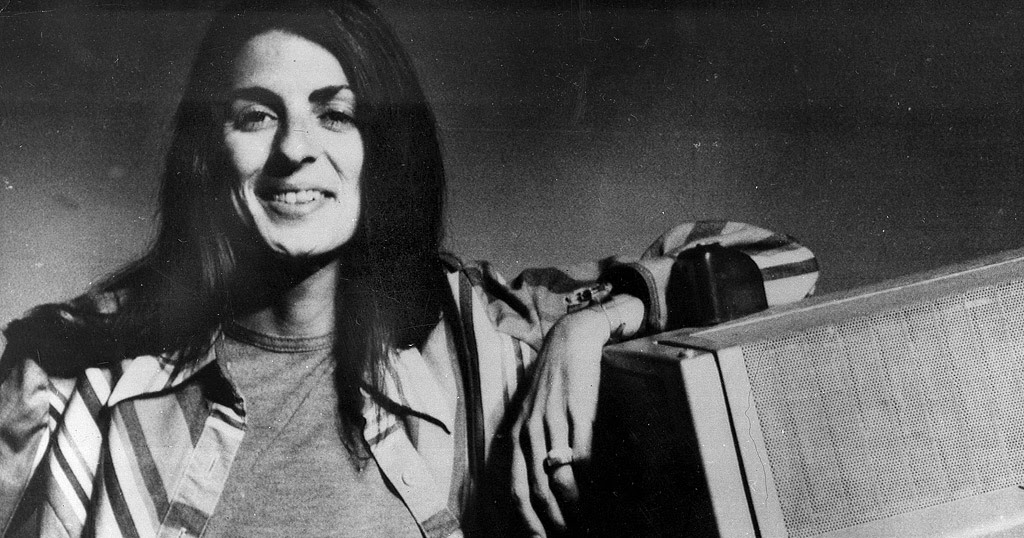In the world of broadcast journalism, few stories are as haunting and compelling as that of Christine Chubbuck. Her tragic life and untimely death have sparked conversations about mental health, the ethics of journalism, and the impact of media on society. Among the various aspects of her story, the Christine Chubbuck videos have emerged as a focal point for understanding her struggles and the circumstances that led to her shocking on-air suicide in 1974. This article delves into the life of Christine Chubbuck, the context surrounding her videos, and the broader implications of her legacy.
Christine Chubbuck was a talented and ambitious reporter who faced immense personal challenges, including depression and a desire to create meaningful journalism. Her life was marked by a passionate commitment to her work, yet overshadowed by the pressures of the broadcast industry. The Christine Chubbuck videos serve as a grim reminder of her struggles and have prompted discussions about the responsibilities of media professionals and the treatment of mental health issues within the industry.
As we explore the significance of Christine Chubbuck and the videos associated with her, it is essential to consider her biography, the events leading up to her tragic end, and the lessons we can learn from her story. Through this examination, we hope to shed light on the complexities of her life and the impact it has had on contemporary discussions related to mental health and media ethics.
What Was Christine Chubbuck's Background?
Christine Chubbuck was born on August 24, 1944, in Hudson, Ohio. She showed an early interest in journalism and media, eventually earning a degree in broadcasting from Boston University. Her career began in the 1960s, and she became known for her dedication to her work and her desire to report on meaningful stories. Despite her professional achievements, Christine struggled with personal issues that would ultimately lead to her tragic fate.
Christine Chubbuck's Biography
| Detail | Information |
|---|---|
| Name | Christine Chubbuck |
| Born | August 24, 1944 |
| Birthplace | Hudson, Ohio |
| Education | Boston University (Degree in Broadcasting) |
| Career | News Anchor and Reporter |
| Date of Death | July 15, 1974 |
| Cause of Death | Suicide |
What Happened During Christine Chubbuck's On-Air Incident?
On July 15, 1974, Christine Chubbuck was anchoring a morning news program in Sarasota, Florida, when she delivered a shocking report that would become infamous in media history. During the broadcast, she pulled out a revolver and shot herself in the head, an act that was captured on live television. The incident sent shockwaves through the media community and raised profound questions about mental health, the pressures of the broadcasting industry, and the ethics surrounding sensationalism in news reporting.
What Were the Reasons Behind Christine Chubbuck's Tragic Decision?
Several factors contributed to Christine's tragic decision to end her life on live television. Among them were her struggles with depression, feelings of inadequacy, and frustration with the sensationalism that often dominated news reporting. Christine had previously expressed her desire to produce meaningful journalism rather than merely report on violent events, which weighed heavily on her conscience. The culmination of these pressures ultimately led her to make a drastic statement about the state of the media.
How Have the Christine Chubbuck Videos Influenced Society?
The Christine Chubbuck videos have had a lasting impact on discussions about mental health awareness and the responsibilities of media professionals. The footage serves as a stark reminder of the importance of addressing mental health issues within the industry and fostering a more supportive environment for journalists. In the years following her death, there has been a growing recognition of the need for open conversations about mental health and the ethical implications of sensationalized reporting.
What Lessons Can Be Learned from Christine Chubbuck's Story?
- The importance of mental health awareness in high-pressure professions.
- The need for ethical reporting practices that prioritize the well-being of individuals involved in news stories.
- The responsibility of media organizations to provide support and resources for their employees.
- The necessity of fostering open conversations about mental health to reduce stigma and promote understanding.
How Has Christine Chubbuck's Legacy Endured Over Time?
Despite the tragic circumstances of her death, Christine Chubbuck's story continues to resonate with audiences and serves as a catalyst for discussions about mental health, journalism ethics, and the impact of media on society. Her life and the Christine Chubbuck videos have inspired numerous documentaries, articles, and even fictional portrayals, all seeking to explore the complexities of her character and the events that led to her demise.
What Should Be the Future of Media Ethics and Mental Health Awareness?
As the media landscape continues to evolve, it is crucial for industry professionals to prioritize mental health awareness and ethical reporting practices. By learning from the lessons of Christine Chubbuck's story, journalists can work towards creating a more supportive environment that values the well-being of all individuals involved in the news process. Emphasizing the importance of mental health resources and ethical considerations will ultimately lead to a more responsible and compassionate media landscape.



